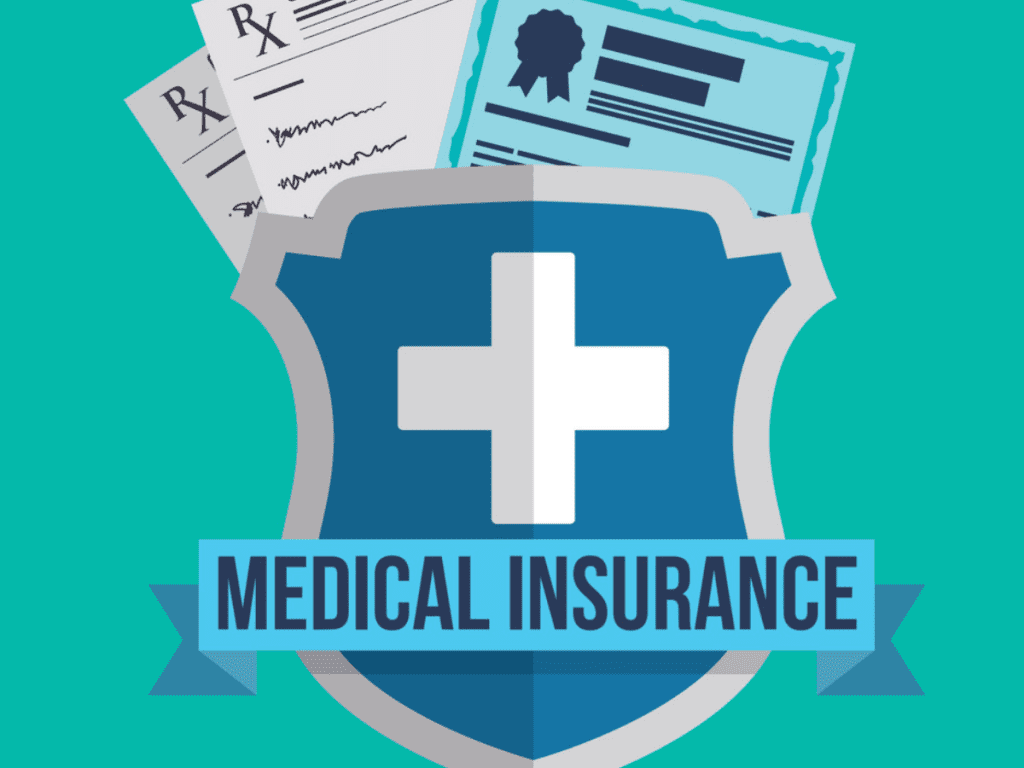Introduction
In today’s fast-paced world, where uncertainties are a part of daily life, one of the most important decisions you can make is ensuring that you have adequate medical insurance coverage. The significance of health insurance extends beyond just having a safety net in case of emergency; it is a vital tool for managing both your short-term and long-term health care needs. With healthcare costs rising steadily and medical conditions becoming more prevalent, health insurance is no longer a luxury—it’s a necessity.
Health Risks and Medical Expenses
Medical expenses can accumulate rapidly, especially when an individual faces a sudden illness, chronic condition, or an unexpected accident. For instance, even a routine hospitalization could lead to bills amounting to thousands of dollars, which can create a financial burden. Without proper health insurance, you might find yourself under financial stress, trying to manage both the cost of treatment and the lack of savings.
Medical costs are not limited to hospitalization. Regular doctor visits, prescription drugs, diagnostic tests, and even preventive care can add up over time. According to the Centers for Disease Control and Prevention (CDC), the average American family spends thousands of dollars each year on healthcare. The increasing rates of chronic diseases, such as diabetes, hypertension, and heart conditions, further compound the financial challenge. As the population ages and medical technology advances, the cost of treatments and services is only expected to increase.
Medical insurance provides financial protection against these costs, allowing individuals and families to receive the care they need without the overwhelming burden of out-of-pocket expenses. It can cover everything from doctor visits to complex surgeries, prescription medications, and even mental health services. By spreading the financial risk among a larger group of insured individuals, insurance companies can offer affordable plans that help people access medical services when needed.
Access to Quality Healthcare
One of the greatest advantages of medical insurance is the access it provides to quality healthcare. Without insurance, many people might be deterred from seeking medical attention due to cost concerns. Some individuals delay or forgo necessary treatments, leading to worsening health conditions that could have been prevented or treated earlier.
Insurance coverage ensures that individuals can visit doctors, specialists, and hospitals when they need to, without worrying about the costs. Medical insurance gives people the ability to choose healthcare providers that best suit their needs. It opens doors to a network of trusted hospitals, physicians, and other medical professionals who can provide comprehensive care. In addition, many health plans offer preventive services, such as routine check-ups, vaccinations, screenings, and wellness programs, that promote early detection and health maintenance.
When individuals have access to better healthcare, they are more likely to receive timely treatments and advice, which can improve their health outcomes. Early diagnosis of diseases can save lives, reduce the cost of treatment in the long run, and help people return to their daily routines faster. This is particularly important for conditions like cancer, where early intervention can make a significant difference in treatment success rates and overall survival.
Financial Protection Against Catastrophic Events
Medical emergencies can strike at any time, and when they do, the financial impact can be devastating. Whether it’s a car accident, a sudden illness, or an unexpected medical condition, the cost of emergency care can be astronomical. For example, a serious accident that requires surgery, hospitalization, and rehabilitation can cost tens of thousands of dollars.
Without insurance, paying for these medical bills could force individuals into financial ruin. Many people might be forced to dip into their savings, take out loans, or even file for bankruptcy in order to cover their medical expenses. Medical insurance offers protection in these catastrophic situations by covering most of the costs, leaving individuals responsible for only a small portion in the form of copayments or deductibles.
In addition, health insurance helps protect against the long-term financial burden of chronic conditions or ongoing medical treatments. Some chronic illnesses require lifelong treatment and medication, which can be extremely expensive. Health insurance ensures that individuals can continue their treatment without having to worry about the financial strain.
Encouraging Preventive Care
One of the most significant benefits of medical insurance is its emphasis on preventive care. Health insurance providers typically cover a range of preventive services at no additional cost to the insured. These services can include screenings for conditions like high cholesterol, diabetes, or cancer, as well as vaccinations, counseling, and wellness check-ups. Preventive care plays a crucial role in identifying potential health risks early and managing them effectively before they become serious problems.
For example, many types of cancer, such as breast, cervical, and colon cancer, can be detected early through regular screenings. When caught in the early stages, cancer can often be treated more effectively and with less invasive procedures. Similarly, routine health check-ups and blood tests can help identify conditions like diabetes, hypertension, and high cholesterol before they develop into more severe health issues, potentially saving lives and reducing treatment costs.
Health insurance promotes this kind of care by covering preventive services. Without insurance, many people may skip these essential screenings due to cost concerns, only to find themselves facing more severe health problems later on, often with higher treatment costs. By covering preventive care, insurance companies help reduce overall healthcare costs and improve the health of the insured population.
Health Insurance as a Tool for Mental Health Support
While medical insurance has traditionally been associated with physical health, it is also an important tool for addressing mental health issues. Mental health has gained significant attention in recent years, as more people have recognized the importance of psychological well-being. Conditions such as depression, anxiety, and stress-related disorders are on the rise, affecting millions of people worldwide.
Health insurance plans often cover mental health services, including counseling, therapy, and psychiatric care. This coverage enables individuals to seek the help they need without the financial strain that might otherwise prevent them from pursuing treatment. Mental health support is an essential aspect of overall wellness, and having insurance coverage ensures that people can access the appropriate care.
Without medical insurance, the cost of mental health services can be prohibitive, leaving many individuals without the necessary support. Mental health problems, if left untreated, can significantly affect a person’s quality of life and can also have a detrimental impact on relationships, work performance, and overall health. Medical insurance ensures that individuals have access to professional mental health services that can help them manage their conditions and improve their overall well-being.
The Growing Need for Medical Insurance
The importance of medical insurance is becoming more evident as the world faces a variety of health challenges. With the global aging population, the rise of chronic diseases, and the increasing cost of medical treatments, health insurance has become an essential part of ensuring access to necessary care. In addition, the COVID-19 pandemic highlighted the need for comprehensive healthcare coverage, as millions of people around the world experienced the effects of the virus and the strain it put on healthcare systems.
As healthcare costs continue to rise, medical insurance is no longer something that people can afford to overlook. In many countries, the availability of public healthcare systems or insurance options has become a fundamental part of ensuring that people can access care when needed. Employers increasingly offer health insurance as part of their benefits package, recognizing the value of protecting the health of their employees and reducing absenteeism due to illness. Government-backed programs, such as Medicaid and Medicare in the United States, provide low-income and elderly populations with essential medical coverage, ensuring that no one is left behind.
For those who are self-employed or don’t have access to employer-sponsored insurance, private health insurance options provide a valuable alternative. The flexibility of private insurance allows individuals to choose coverage that fits their needs, whether it’s a basic plan for preventive care or a more comprehensive policy for those with chronic conditions or specific health needs.
Conclusion
In conclusion, medical insurance plays a pivotal role in protecting your health, ensuring that you have access to necessary healthcare services, and offering financial protection against high medical costs. It promotes preventive care, mental health support, and timely medical treatments, which can significantly improve long-term health outcomes. In an era of rising healthcare costs and unpredictable medical events, health insurance is no longer a luxury but an essential tool for safeguarding your health and financial well-being.
Investing in medical insurance not only protects you from the immediate financial burden of medical expenses but also ensures that you have access to the quality care you need to live a healthy, fulfilling life. Given the growing prevalence of chronic diseases, aging populations, and unexpected health crises, medical insurance is more important than ever before. It is an investment in both your health and your financial future, offering peace of mind and the ability to navigate the complexities of healthcare with confidence.

